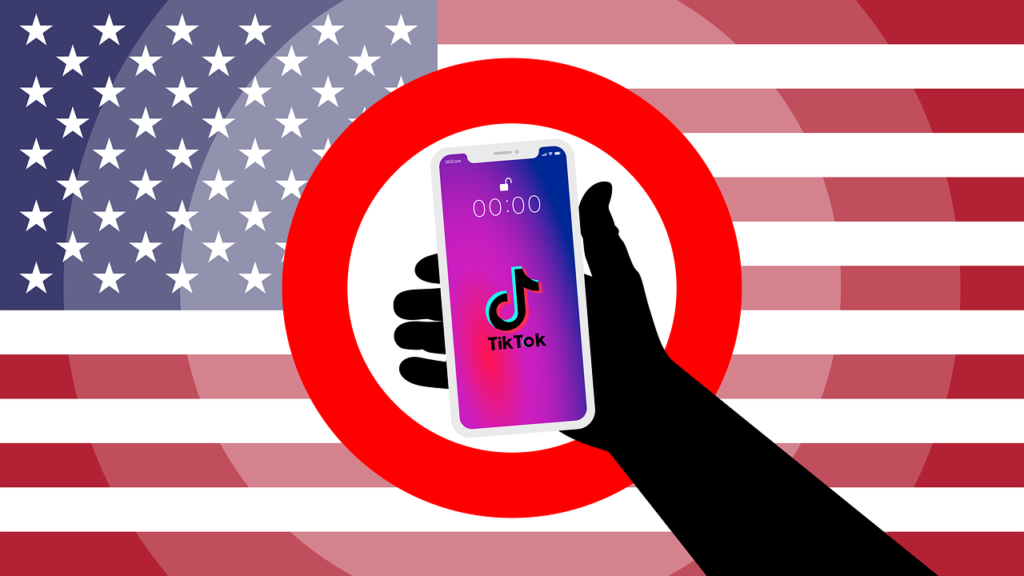In recent years, TikTok, the immensely popular social media platform owned by the Chinese company ByteDance, has faced increasing scrutiny in the United States. The federal government has proposed banning the app, citing national security concerns. The primary argument is that TikTok’s Chinese ownership poses a risk to American users’ data, which could allegedly be accessed by the Chinese government. While the idea of safeguarding national security is a valid concern, the proposed ban raises questions about consistency, fairness, and whether this is truly about protecting Americans—or something else entirely.
The Double Standard: Why Target TikTok?
The claim that TikTok is a national security threat because of its Chinese ownership appears hypocritical when viewed in a broader context. Numerous other Chinese-owned companies operate freely within the United States, many of which also collect sensitive user data. Take Temu, for example—a rapidly growing e-commerce platform also owned by a Chinese entity. Temu collects not only personal data but also financial information, including credit card details. Yet, it has not faced the same level of scrutiny or calls for a ban.
Moreover, if protecting user data is truly the government’s priority, why is there no comparable outrage over the multiple data breaches that have plagued U.S.-based tech giants like Meta (formerly Facebook) and X(formerly Twitter)? Both companies have suffered significant security failures that exposed millions of users’ private information to hackers. These incidents demonstrate that data security issues are not exclusive to foreign-owned platforms. In fact, they are a systemic problem in the tech industry as a whole.
Is It Really About National Security?
The selective targeting of TikTok raises doubts about whether national security is the true motivation behind the proposed ban. Critics argue that this is less about protecting Americans and more about control—control over what people can see, say, and hear. This brings to mind authoritarian regimes like North Korea and Russia, which heavily regulate media to ensure their citizens are exposed only to state-approved narratives. Could banning TikTok be a step toward limiting the free flow of information in the United States?
While the U.S. government has not outright stated that its goal is to suppress free speech, the implications of such a ban cannot be ignored. TikTok has become a platform where millions of Americans express themselves, share ideas, and engage in conversations on topics ranging from politics to pop culture. Silencing this platform would undoubtedly have a chilling effect on free expression.
The Supreme Court and TikTok: A Case for Free Speech
If TikTok ban were to be challenged in court, it would raise significant First Amendment concerns. The platform serves as a modern public square where users exercise their right to free speech. Whether it’s through political commentary, artistic expression, or social activism, TikTok has empowered voices that might otherwise go unheard.
The Supreme Court has historically protected free speech in various forms, from traditional print media to digital platforms. If TikTok is banned, it sets a dangerous precedent for the government to restrict access to other social media platforms under the guise of national security or other vaguely defined threats. Upholding such a ban would erode one of the foundational principles of American democracy.
The Ripple Effect: Impact on 170 Million Users
Banning TikTok would affect approximately 170 million Americans who use the app regularly. For many, TikTok is more than just entertainment; it’s a livelihood. Small businesses rely on the platform for marketing and sales, while creators use it to generate income through monetization, sponsorships and partnerships. Removing TikTok would not only disrupt these economic opportunities but also stifle innovation and creativity.
Additionally, a ban could alienate younger generations who view TikTok as an integral part of their daily lives. This demographic already harbors skepticism toward traditional institutions, and such a move could deepen their mistrust of the government.
Is TikTok Truly Free Speech?
While TikTok facilitates free expression, it’s worth noting that no social media platform is entirely free from limitations. Like Meta and X (FormerlyTwitter), TikTok employs algorithms that curate content and enforce community guidelines. These mechanisms inevitably shape what users see and engage with, raising questions about how “free” this speech truly is.
However, even with these limitations, TikTok remains one of the most democratized platforms available today. Its algorithm often prioritizes content based on engagement rather than follower count, giving everyday users a chance to reach large audiences—a feature that sets it apart from many other social media platforms.
Conclusion: A Need for Consistency and Transparency
The debate over banning TikTok highlights broader issues about data privacy, free speech, and government overreach. If national security is genuinely at stake, then policymakers must address these concerns consistently across all platforms—domestic and foreign-owned alike. Singling out TikTok while ignoring similar risks posed by other companies undermines the credibility of these efforts.
At its core, this issue is about more than just one app; it’s about how we balance security with individual freedoms in an increasingly digital world. Rather than resorting to bans that stifle innovation and expression, the U.S. should focus on implementing comprehensive data privacy legislation that protects all Americans—regardless of which platform they choose to use.
As this debate unfolds, one thing remains clear: any action taken against TikTok must be carefully considered to ensure it aligns with democratic values and does not set a dangerous precedent for future restrictions on free speech and access to information.



